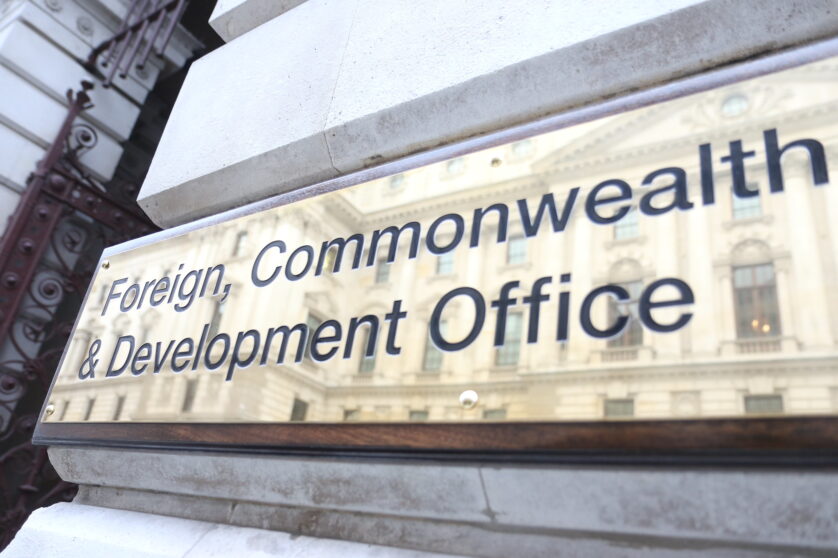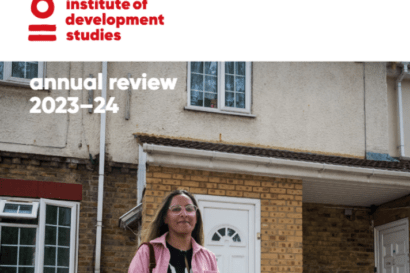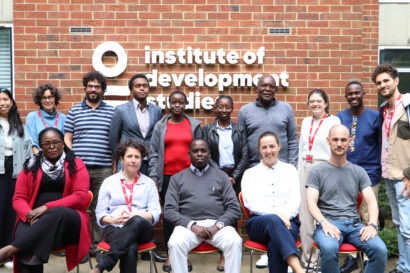Last week, the UK government published a new White Paper on International Development which sets out its approach to international development until 2030. It’s been fourteen years since the UK last published a white paper, and, with the Foreign Secretary and former Prime Minister David Cameron managing to squeeze in a Foreword following his recent appointment , the new strategy merits closer attention.
Some of its key themes include:
- Multiple, intersecting crises as the new context for development.
- Ending extreme poverty and tackling climate and environmental change through integrated approaches.
- Focusing on partnerships, with a ‘new approach’ to development founded on respectful partnerships rather than a charity model.
- Targeting the most marginalised, focusing UK official development assistance (ODA) on the lowest income countries, and focusing efforts on women and girls, people living with disability and the LGBT community.
- New approaches to development financing, complementing ODA with initiatives to mobilise the power of private finance, multi-lateral development banks, trade and debt restructuring.
On tax, the paper calls for fairer and more effective taxation systems, with the UK committing to:
- Helping low- and middle-income countries get the revenues they are owed from the international tax system, doubling-down on its efforts to improve their access to international rules on corporate information exchange (CbCR) and encouraging development partners to support greater capacity building to enable implementation of rules such as the new global minimum tax.
- Deepening its offer to countries to help them improve revenue performance and promote sustainable, inclusive growth, using its bilateral tax support programmes and the peer-to-peer support provided by the UK Revenue Authority (HMRC)’s capacity building unit.
ICTD response to the UK Government’s Call for Evidence
The UK Government had earlier put out a call for evidence ahead of its white paper publication, in which ICTD was able to present evidence and lessons from over ten years of working on tax in low and middle-income countries.
Some key areas which ICTD flagged include:
- The importance of partnerships with Ministries of Finance and revenue authorities to jointly identify key problems and creative solutions, warning that priorities and strategies modelled on international ‘best practice’ often do not match the context-specific priorities and needs of partners. Reform is most successful where aid, technical assistance, and research are mobilised to support local reform champions and initiatives.
- Regaining trust and building credibility of low-income countries (LICs) involves appreciating that some existing rules, such as those on country-by-country reporting by multinational enterprises, create considerable resentment among LICs that are unable to benefit. ICTD suggested that the UK could play a significant role, being home to many multinational enterprises and expatriates, significant offshore wealth and service exports, and more bilateral tax treaties than any other country. It is uniquely positioned to assist LICs in identifying and recovering revenues and assets lost to illicit finance, by supporting more effective information exchange and access to beneficial ownership information.
- Finally, research by the ICTD and similarly focused organizations has highlighted specific areas in which support for tax reform can contribute to increased revenue mobilisation, increased equity, and broader improvements in state capacity and accountability. Mobilizing private finance for generating revenue has limited potential, particularly in lower-income countries. So, for donors interested in leveraging ODA to mobilize additional resource for development, support to building stronger tax systems and to curbing illicit financial flows offer the most compelling pathway forward.
Expert perspectives
Wilson Prichard, ICTD Chief Executive and Chair of the Local Government Revenue Initiative
“Alongside emphasis in the white paper on strengthening the international tax system and making it more responsive to the needs of lower-income countries, it also highlights a continued commitment to supporting the strengthening of domestic tax systems and tax administrations. This is an area in which the FCDO has long been a leader.
Efforts to strengthen the international tax system will only bear fruit if they are supported by investments in locally appropriate national legislation and strong national tax administrations to put those rules into practice. That is best achieved when efforts to strengthen enforcement of international tax rules are embedded within broader strategies for strengthening tax administration.
More generally, broad progress in improving revenue mobilization, and improving the progressivity of tax systems, will depend upon progress across the entirety of revenue systems. That includes, among others, opportunities to strengthen the taxation of the wealthy, to strengthen property tax systems, to adopt more appropriate strategies for taxing informal sector, to adopt locally appropriate environmental taxes, to strengthen taxation of things like tobacco and alcohol and to curb gaps in collection of other major taxes. Those in turn will depend upon effective and well-designed investments in digitalization and, perhaps above all, efforts to build trust among taxpayers that revenues are fairly collected, and will be used for public benefit, to encourage tax compliance and the political support needed to drive sustainable reform forward.”
Martin Hearson, ICTD Research Director and Lead on International Tax and the DIGITAX programmes
The white paper says the UK will “double down” on efforts to help developing countries access country-by-country reporting (CBCR) information. This is a tax reporting standard designed to assist tax authorities assess multinational companies’ tax liabilities. As we mentioned in our submission to the call for evidence on the white paper, the CBCR standard is the source of considerable resentment in lower-income countries. ICTD research conducted in 2020, based on interviews with government officials, found that “there is now widespread enthusiasm for the concept among lower-income country revenue authorities, combined with some frustration with the design of the rules. The implementation requirements are regarded as onerous, especially when compared to the limited utility of the data.”
There is also an ambition in the white paper to “champion the voices of low- and middle-income countries” in multilateral negotiations, a timely call in the week when the UN General Assembly voted to begin work on a Framework Convention on International Tax Cooperation, which was adopted by a landslide majority.
ICTD research this year found that many government officials from lower-income countries do not consider current decision-making processes to be fully inclusive, and do not always find international standards appropriate for their countries. One recommendation from our research is that support on offer to low and middle income countries should include technical assistance to develop capacity to engage in multilateral negotiations.”
Max Gallien, Research Fellow and Informality and Tax co-lead
The white paper highlights the potential for low-income countries to raise more domestic tax revenue through improvements in policy and administration (4.42). This is important as further developments in tax capacity are not only essential to domestic revenue mobilisation but an essential aspect of building effective, inclusive and resilient states. The white paper points to the importance of long-term support in this area, citing the example of the UK’s work with the Rwanda Revenue Authority, with whom the ICTD has collaborated closely in the past years.
As both research and practice have shown, developing tax capacity is an iterative process that requires sustained engagement. The white paper displays both optimism and realism in stating that “low-income countries could collect up to $260 billion more tax revenue each year”, both highlighting the substantial potential for gains made in this area, but at the same time steering clear of more excessively optimistic figures.
The FCDO plans to “deepen our offer to countries to help them improve revenue performance and promote sustainable, inclusive growth” (4.44), a goal that is also a centrepiece of the ICTD’s work.




